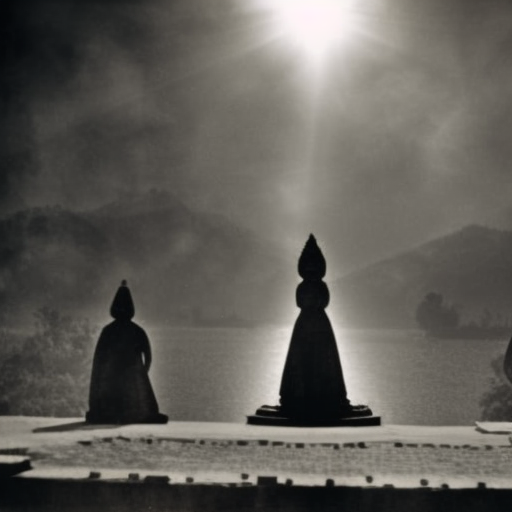The Founding of Jainism by Mahavira
Mahavira, also known as Vardhamana, was the founder of Jainism, an ancient religion that originated in India around the 6th century BCE. Born in a noble family in present-day Bihar, Mahavira renounced his comfortable life at the age of 30 to seek spiritual enlightenment.
Early Life and Renunciation
Mahavira was born in 599 BCE in Kundagrama, a small town near Vaishali in present-day Bihar. He was the son of King Siddhartha and Queen Trishala. According to Jain tradition, his birth was marked by auspicious signs and prophecies of greatness. As a young prince, Mahavira was well-educated and trained in various arts and sciences.
At the age of 30, Mahavira decided to renounce his luxurious life and become an ascetic. He gave up his princely robes, shaved his head, and wore simple clothes. He practiced extreme austerity, including fasting and meditation, in his quest for spiritual liberation.
Teachings and Philosophy
Mahavira’s teachings formed the foundation of Jainism. He emphasized the importance of non-violence (ahimsa), truthfulness (satya), non-stealing (asteya), celibacy (brahmacharya), and non-attachment (aparigraha). These principles became the core values of Jainism and continue to be followed by Jains to this day.
Mahavira believed in the existence of eternal souls, which he called jivas. He taught that all living beings, including humans, animals, and even plants, have souls and should be treated with respect and compassion. He preached that the ultimate goal of life is to attain liberation from the cycle of birth and death by purifying the soul through self-discipline and detachment from worldly desires.
Spread of Jainism
Mahavira’s teachings attracted a large number of followers, both from the noble classes and the common people. He established a monastic order, known as the Jain Sangha, which consisted of monks (sadhus) and nuns (sadhvis). The monks and nuns followed strict rules of conduct and practiced asceticism to attain spiritual enlightenment.
Jainism spread rapidly during Mahavira’s lifetime and continued to gain followers after his death. Mahavira’s disciples, known as Ganadharas, played a crucial role in preserving and spreading his teachings. They compiled his sermons and teachings into sacred texts, known as the Agamas, which form the basis of Jain scripture.
Final Years and Death
Mahavira spent the last 30 years of his life traveling across different regions of India, preaching his philosophy and spreading the message of Jainism. He faced numerous challenges and opposition from rival religious groups, but he remained steadfast in his beliefs.
In 527 BCE, at the age of 72, Mahavira attained spiritual liberation, known as moksha, and achieved the state of Kevala Jnana, infinite knowledge. His death, known as nirvana, is celebrated by Jains as Mahavir Nirvana Diwas. It is believed that his soul was liberated from the cycle of birth and death and attained eternal bliss.
Legacy
Mahavira’s teachings had a profound impact on Indian society and culture. Jainism emerged as a distinct religious tradition, emphasizing non-violence, compassion, and ethical living. Jain temples and monastic institutions were established across India, and Jain scholars made significant contributions to philosophy, literature, and art.
Today, Jainism is one of the major religions in India, with millions of followers. Jains continue to uphold the principles and teachings of Mahavira, striving for spiritual liberation and practicing non-violence towards all living beings.
In conclusion, Mahavira’s renunciation and teachings laid the foundation for Jainism, a religion that emphasizes non-violence, truthfulness, and detachment from worldly desires. His profound spiritual insights and ethical principles continue to inspire millions of people to lead a virtuous and compassionate life.












